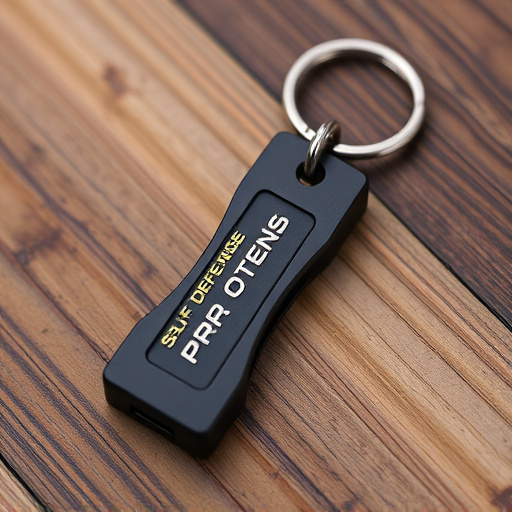United States residents carrying self-defense keychains must understand their state's specific laws, as regulations vary widely. Key considerations include metal construction quality (e.g., stainless steel), craftsmanship, and compliance with local "Self Defense Keychain Laws by State." These laws define deadly force, self-defense presumptions, and permitted devices, ensuring legal protection while prioritizing safety and effectiveness.
In today’s world, self-defense is a significant consideration for personal safety. One popular tool gaining traction is the self-defense keychain—a compact, yet powerful defense mechanism easily accessible to all. This article explores the legal landscape surrounding these keychains, focusing on understanding state-specific regulations (Self Defense Keychain Laws by State). We delve into the crucial aspect of metal construction quality and offer tips for choosing safe and effective self-defense accessories.
- Understanding Self Defense Keychain Laws: A Comprehensive Overview
- Metal Construction Quality: What to Look for in a Self Defense Keychain
- State-Specific Regulations: Navigating the Legalities of Self Defense Keychains
- Ensuring Safety and Effectiveness: Tips for Choosing the Right Self Defense Accessory
Understanding Self Defense Keychain Laws: A Comprehensive Overview
In the United States, the legal framework surrounding self-defense keychains varies significantly from state to state. Understanding these laws is crucial for anyone considering carrying a self-defense tool on their keychain. Each state has its own definition of what constitutes a legal self-defense weapon and sets specific restrictions on the types of devices allowed. For instance, some states explicitly permit certain types of keychains designed for personal protection, while others have broader provisions that include any object used to protect oneself.
When exploring Self Defense Keychain Laws by State, it’s essential to look into local legislation. Some states might require registration or permits for specific self-defense devices, while others may not. Additionally, there are often restrictions on the level of force that can be used, with many states mandating a reasonable response based on the perceived threat. Staying informed about these laws ensures compliance and peace of mind, knowing your rights and responsibilities as a citizen armed with a self-defense keychain.
Metal Construction Quality: What to Look for in a Self Defense Keychain
When choosing a self-defense keychain, understanding the metal construction quality is paramount. Look for keychains made from high-grade metals like stainless steel or aluminum alloy, which offer superior durability and resistance to corrosion. These materials ensure your keychain can withstand daily use and remain reliable when you need it most.
Inspect the craftsmanship and finish; a well-made keychain should have smooth edges and a secure fastening mechanism. Pay attention to Self Defense Keychain Laws by State, as regulations vary, and ensure the design complies with local requirements. Quality construction not only guarantees legal compliance but also enhances the keychain’s effectiveness as a self-defense tool.
State-Specific Regulations: Navigating the Legalities of Self Defense Keychains
When considering a self-defense keychain, understanding the legal landscape across different states is crucial. Each state in the U.S. has its own set of regulations and laws regarding the use and possession of self-defense tools, including keychains. The terminology used to describe these devices can vary from state to state, but the core principles often revolve around the definition of “deadly force” and “self-defense.” Some states have specific provisions for self-defense keychain laws, while others might fall under broader categories like “rebuttable presumption of self-defense” or “justifiable use of force.”
Navigating these State-Specific Regulations (SSR) is essential to ensure compliance with local laws. Key aspects include understanding what constitutes legal self-defense and when the use of a keychain can be considered justified. For instance, some states allow for the use of force, including potentially deadly force, if it’s necessary to protect oneself from imminent harm. Others might have stricter guidelines, requiring individuals to try de-escalation techniques or retreat before resorting to physical force. It’s vital to research and understand your state’s specific laws to ensure responsible and legal self-defense keychain usage.
Ensuring Safety and Effectiveness: Tips for Choosing the Right Self Defense Accessory
When selecting a self-defense keychain, safety and effectiveness should be your top priorities. These tiny tools are designed to be easily portable and accessible, providing a sense of security in unexpected situations. However, not all keychains are created equal. It’s crucial to consider factors like construction quality and metal type to ensure it can withstand real-life use. High-quality metal constructions offer durability and resistance to breaks or bends, vital attributes for a self-defense tool you might rely on.
Additionally, understanding local Self Defense Keychain Laws by State is essential before making your purchase. Legal restrictions vary widely, affecting not only what types of self-defense devices are legal but also where and how they can be carried. Staying informed about these laws ensures compliance and peace of mind. Remember, the right accessory should offer both personal protection and adherence to legal boundaries.
Understanding the legal landscape surrounding self-defense keychains is crucial, especially with varying state laws. When selecting a self-defense keychain, prioritize quality metal construction and ensure it meets safety standards. By staying informed about local regulations and choosing a reliable accessory, you can empower yourself while navigating the legalities of self-defense keychain possession. Remember, preparedness and knowledge are key to ensuring your safety and peace of mind.
